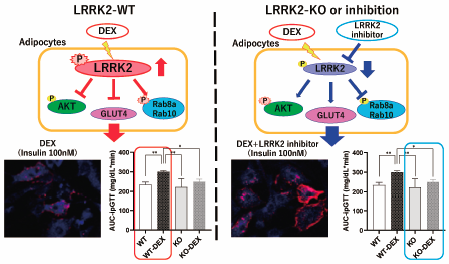-
Motoki Imai
Department of Regulation Biochemistry, Graduate School of Medical Sciences, Kitasato University
-
Fumitaka Kawakami
Department of Regulation Biochemistry, Graduate School of Medical Sciences, Kitasato University Research Facility of Regenerative Medicine and Cell Design, Kitasato University School of Allied Health Science
-
Makoto Kubo
Research Facility of Regenerative Medicine and Cell Design, Kitasato University School of Allied Health Science Division of Clinical Immunology, Graduate School of Medical Sciences, Kitasato University
-
Makoto Kanzaki
Department of Biomedical Engineering, Graduate School of Biomedical Engineering, Tohoku University
-
Hiroko Maruyama
Research Facility of Regenerative Medicine and Cell Design, Kitasato University School of Allied Health Science Department of Cytopathology, Graduate School of Medical Sciences, Kitasato University
-
Rei Kawashima
Department of Regulation Biochemistry, Graduate School of Medical Sciences, Kitasato University Research Facility of Regenerative Medicine and Cell Design, Kitasato University School of Allied Health Science
-
Tatsunori Maekawa
Department of Regulation Biochemistry, Graduate School of Medical Sciences, Kitasato University Research Facility of Regenerative Medicine and Cell Design, Kitasato University School of Allied Health Science
-
Yoshifumi Kurosaki
Research Facility of Regenerative Medicine and Cell Design, Kitasato University School of Allied Health Science Department of Medical Laboratory Sciences, Kitasato University School of Allied Health Sciences
-
Fumiaki Kojima
Research Facility of Regenerative Medicine and Cell Design, Kitasato University School of Allied Health Science Department of Pharmacology, Kitasato University School of Allied Health Sciences
-
Takafumi Ichikawa
責任著者
Department of Regulation Biochemistry, Graduate School of Medical Sciences, Kitasato University Research Facility of Regenerative Medicine and Cell Design, Kitasato University School of Allied Health Science
電子付録
2020 年 43 巻 11 号 p. 1660-1668
- Published: 2020/11/01 Received: 2020/04/27 Released on J-STAGE: 2020/11/01 Accepted: 2020/07/31 Advance online publication: - Revised: -
(EndNote、Reference Manager、ProCite、RefWorksとの互換性あり)
(BibDesk、LaTeXとの互換性あり)


